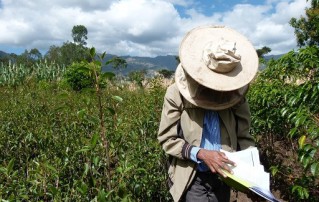Creating Good Jobs in Ethiopia
Export and Business Development for Ethiopian Agribusinesses The backbone of the Ethiopian economy is agriculture, which provides employment for approximately 68% of the working population and represents 30% of GDP. With over 40% of the Ethiopian population being under the age of 15, the Ethiopian government must facilitate the creation of millions of jobs a year to ensure the reduction in the labour surplus. Consequently, and for the past two decades, the Ethiopian government’s strategy for economic development is the structural transformation of the economy from low- to high-productivity agriculture, value-addition and industrialisation. In conjunction with the GIZ project, [Read more]






